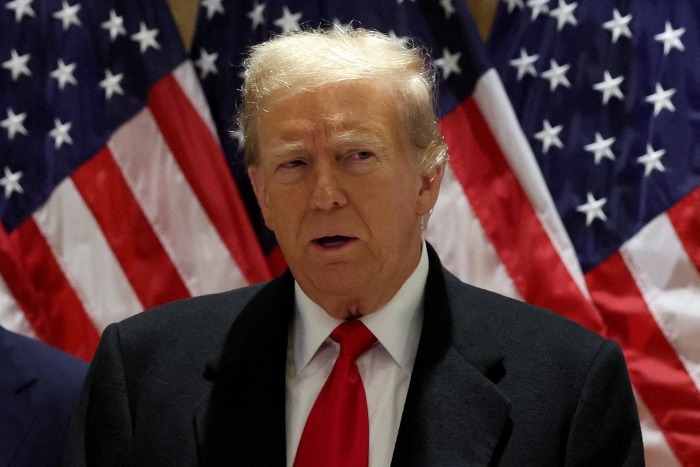A top mathematician who has become a leading economist and investor has expressed concern that the so-called ‘powers that be’ are not going to “allow” Donald Trump to become president again. On Chris Williamson’s “Modern Wisdom” podcast this week Eric Weinstein, the former director of Thiel Capitol, the two were discussing whether they believed that President Joe Biden would have some debilitating event occur between now and the November election that would necessitate the elevation of Vice President Kamala Harris to the White House. But Weinstein changed the subject to “the other part of it.”
“I don’t know whether Donald Trump will be allowed to become president” again, he began. “I think that there’s a remarkable story, and we’re in a funny game, which is, are we allowed to say what that story is? Because to say it, to analyze it, to name it, is to bring it into view,” he added after being pressed by the host, Williamson.
“I think we don’t understand why the censorship is behaving the way it is. We don’t understand why it’s in the shadows. We don’t understand why our news is acting in a bizarre fashion,” Weinstein said. “So let’s just set the stage, given that that was in February. There is something that I think Mike Benz has just referred to as the Rules-Based International Order. It’s an interlocking series of agreements, tacit understandings, explicit understandings, clandestine understandings about how the most important structures keep the world free of war and keep markets open.”
He went on to explain there has been a system in place “that says that the purpose of the two American parties is to prune the field of populist candidates so that whatever two candidates exist in a face-off are both acceptable to that world order.” After providing details about what the system could be, Weinstein added, “So, what the two parties would do is they would run primaries. You have populist candidates, and you’d pre-commit the populist candidates to support the candidates who won the primaries. As long as that took place and you had two candidates that were both acceptable to the international order.”
“We called that democracy. And so, democracy was the illusion of choice, what’s called magicians’ choice, where the choice is not actually…you know, pick a card, any card, but somehow the magician makes sure that the card that you pick is the one that he knows,” he continued. “In that situation, you have magicians’ choice in the primaries, and then you’d have the duopoly field, two candidates, either of which was acceptable, and you could actually afford to hold an election, and the populace would vote, and that way, the international order wasn’t put at risk every four years because you can’t have alliances that are subject to the whim of the people in plebiscites.”
He went on to say that everything in ‘the system’ was fine until Trump managed to break through in 2016. “They learned their lesson. You cannot afford to have candidates who are not acceptable to the international order and continue to have these alliances,” he concluded. “This is an unsolved problem.”
WATCH:
NEW: Economist Eric Weinstein says he doesn’t know if Trump “will be allowed” to become president, says the goal of the World Order is to have two candidates who are both acceptable to them.
“Democracy was the illusion of choice…”
“You had two candidates that were both… pic.twitter.com/rgY29IVNzM
— Collin Rugg (@CollinRugg) September 3, 2024
Weinstein’s shocking explanation comes after Trump was nearly assassinated during a July rally in Butler, Pa., during which the Secret Service inexplicably left a rooftop with a direct line of sight to him unguarded. Local police spotted the shooter, Thomas Crooks, 20, as did local residents and rallygoers well before he shot at Trump, barely missing his head, but subsequent reports have noted that there was no communication between the Secret Service and area police because the federal agents refused to utilize radios provided by local cops.



